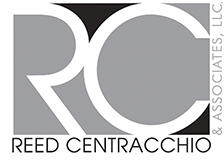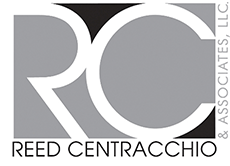
Chicago Mediation Lawyers
HELPING YOU NAVIGATE THE LEGAL COMPLEXITIES
CHICAGO DIVORCE MEDIATION ATTORNEY
SERVING CLIENTS THROUGHOUT CHICAGO, HINSDALE, COOK COUNTY, DUPAGE COUNTY, WILL COUNTY, KANE COUNTY & THE SURROUNDING AREAS
Not every couple wants to engage in a War of the Roses version of divorce or have their differences and private matters aired in open court. For couples who are unable to come to an agreement about issues such as child custody and visitation, child support, or spousal support, Reed, Centracchio & Associates, LLC offers mediation services with Nicole Centracchio, one of the firm’s managing partners and most experienced Chicago divorce mediation attorneys.
Ms. Centracchio is a mediator who has the skills and patience to work toward fair agreements between spouses. In mediation, you and your spouse will rightly know that you have controlled the outcome of your case. This is commonly viewed as much more beneficial than having your future decided by a judge who may never have the opportunity to fully understand your situation. Maintaining control of the settlement process is only one of the many benefits of family law mediation.
Learn more about how our Chicago mediation attorneys can help you resolve family law issues outside of the courtroom. Contact Reed, Centracchio & Associates, LLC for a complimentary consultation online or by calling (312) 500-8344.
What is Mediation?
Mediation is often ordered by the courts when divorcing parties cannot come to acceptable agreements on matters of children, alimony, or marital property division. In mediation, you and your spouse will work with a neutral third party (the mediator) to problem-solve your issues in search of a resolution that is acceptable and workable for you both.
Mediators do not take sides or tell you what to do. They are there to help you communicate better so as to negotiate the terms of an agreement. Our Chicago divorce mediation attorneys also will not force you to agree, either informally or formally in writing, to anything you cannot, in good faith, accept. However, they can help you better understand the issues you face, as well as clarify an issue’s legal requirements under Illinois law.
What are the Benefits of Divorce Mediation?
Because it is conducted privately outside of court, mediation has many benefits. Among these are:
- It can proceed faster than litigation.
- It is less expensive than a trial.
- It fosters cooperation, compromise, and working together, which can improve your post-marital relationship.
- It can lead to customized agreements.
- It leaves you in control of the decision-making process.
- It reduces the emotional turmoil associated with a trial.
Contact Our Chicago Divorce Mediation Lawyer Today
Having received her accreditation and training through Northwestern University in Chicago, Ms. Centracchio follows professional and ethical practices to maintain a dignified setting where fairness, respect, and minimization of conflict are the ultimate goals. She believes that the process works not only to maintain peace of mind, but also to promote a friendly, working, or co-parenting relationship post-divorce. This level of cooperation is especially important for those who have children.
Call (312) 500-8344 or contact us online for assistance with your case from an experienced Chicago divorce mediation attorney.










